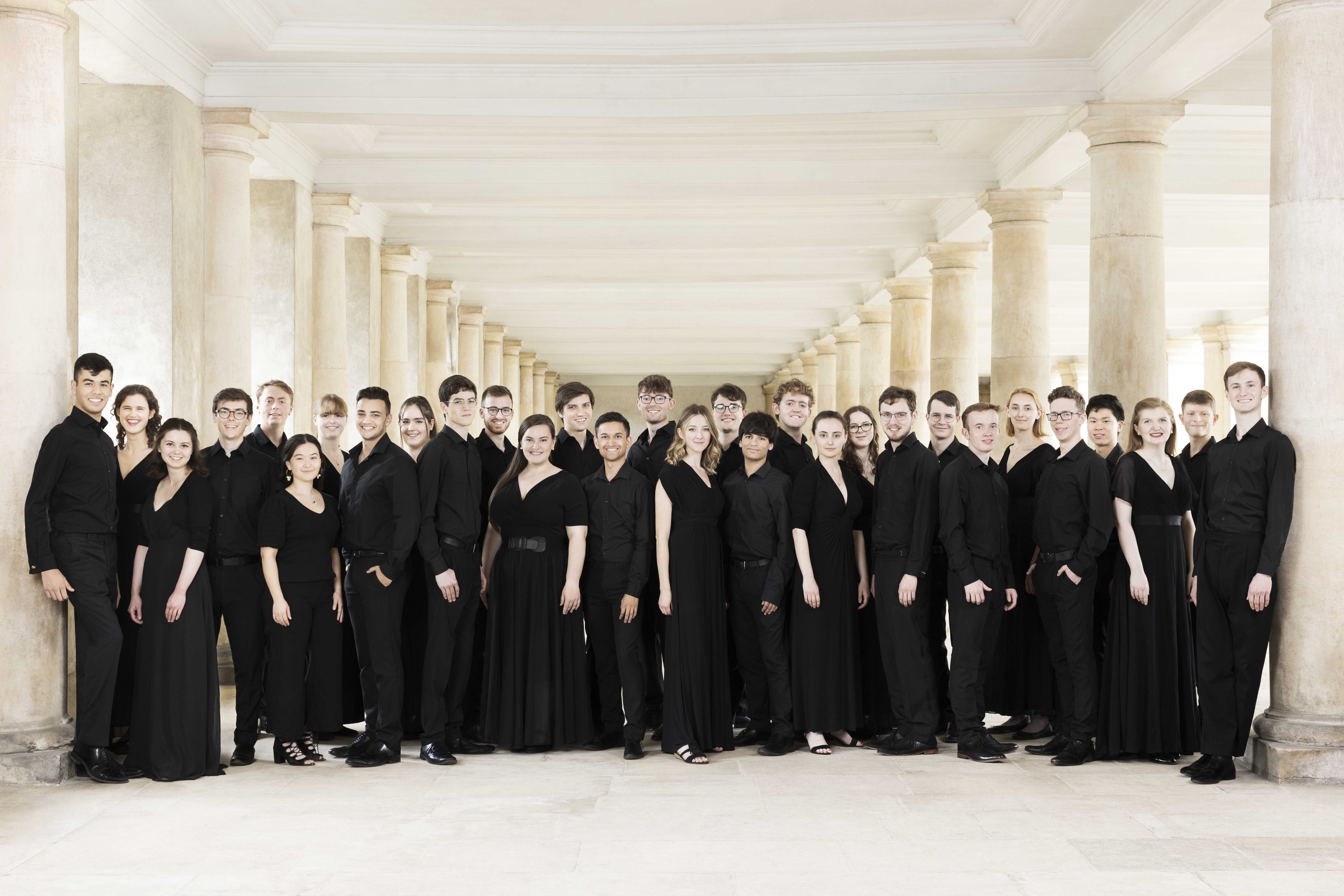Cheltenham Festival, Jul 2013 - BBC Music Magazine
> See concert details...Large, wealthy and just that little bit smug, Trinity is, along with St John’s, the college that other Cambridge colleges seem to love to hate. It is also the home to an exceptionally fine choir. Founded by Richard Marlow in the 1980s, this mixed undergraduate ensemble soon moved on from the role of evensong provider to an acclaimed outfit that tours both in the UK and internationally and records regularly. When Marlow retired in 2006, his good work was taken up another level still by the present music director, Stephen Layton.
That said, it was still slightly odd to see Trinity’s concert at the Cheltenham Festival, held in the chapel of Cheltenham College, described as ‘Virtuoso a Capella’ in the Festival programme. I’m not sure I can ever recall having seen a choir described as ‘virtuoso’ before. Pianists and violinists, yes. Bel canto opera singers, possibly. But not choirs. Nor did the repertoire – largely a mix of relatively restrained works from the 16th and 20th/21st centuries – give any suggestion of the showpiece runs and acrobatics one associates with the term.
But then again, maybe virtuoso is the right word. I for one can’t immediately think of any more appropriate way of describing singing of such staggering accomplishment.
From the outset, it became clear that things were going to be a little bit different from your average concert. It’s not often, after all, that when settled in your pew, you find one of the performers standing at your shoulder and asking if you might be able to budge up a little. The reason for this, we soon learned, was that the choir was to perform its opening five works with its 30-or-so members dotted here and there across the chapel, Layton leading the way from the pulpit.
With its potential to expose the slightest weakness or inconsistency on the part of the singers, this is the sort of trick that could so easily come a cropper. Little chance of that, however – works by Arvo Pärt, John Tavener, Parsons and Tallis were presented with faultless intonation, balance and purity of tone, Layton’s unique layout of singers delivering a sort of live choral surround sound. Did Tallis’s exuberant, but complex, Loquebantur variis linguis maybe sound a little less taut than I’d heard from the Tallis Scholars only four days previously? Possibly, but then Trinity were three times as many in number as the Scholars, who also had the benefit of not being scattered around the building.
A quick interlude on the organ – Bach’s Sinfonia (Cantata 29, arr. Guillou), to be precise – saw the choir make their way up to the chapel’s east end and sing in the more traditional formation, ie standing together, for works entirely from the more modern end of its repertoire: Poulenc, Eriks Esenvalds (a Layton favourite), Peter Bannister and Howells. Different formation, same exquisite results. There were moments here, too, to hear a number of the excellent soloists in his ranks, not least in the searing soprano line at the end of Howells’s ‘I heard a voice from Heaven’.
One final move for the choir saw the singers troop their way down the chapel and up into the organ loft for Britten’s Rejoice in the Lamb… accompanied by organ. Ah, so the ‘A Capella’ (‘unaccompanied’) bit of the concert title wasn’t entirely true either? No matter. This, with its cats called Jeffrey, valiant mice and all, was a splendidly characterful rendition. Admittedly, the organist could have been a tad more imaginative in his registration at times – the potentially chilling climax at ‘Silly Fellow’ was disappointingly bland – but it’s a relatively minor gripe.
Quite rightly, the choir were given a rousing ovation, and responded with a wonderfully lively encore of Harry Warren’s ‘At Last’. Great fun.
One thing, incidentally, which I haven’t yet mentioned but really ought to do so: Trinity performed this concert entirely by heart. The whole lot of it. Not a score in sight. Impressed?
Richard Marlow himself would have been. Sadly, though, the choir’s founder died just over a month ago. He could have no better memorial than performances of this exceptional quality.
Jeremy Pound
